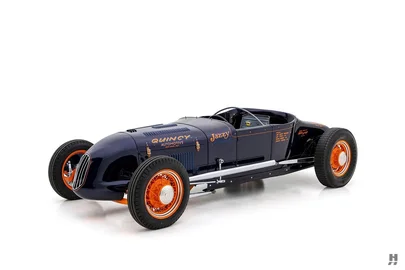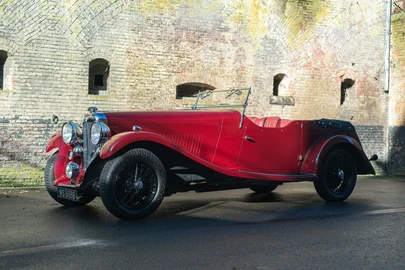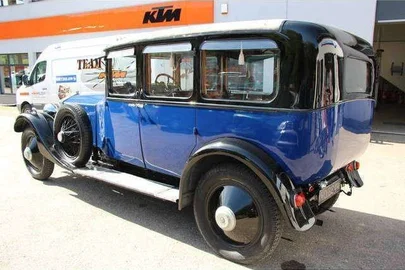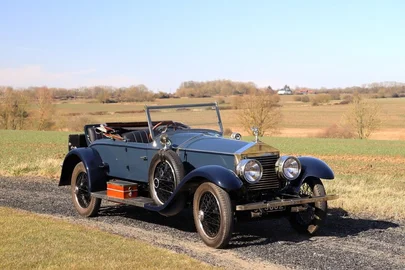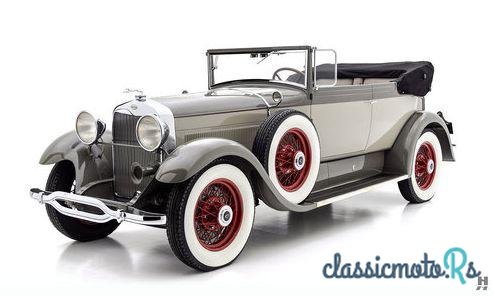
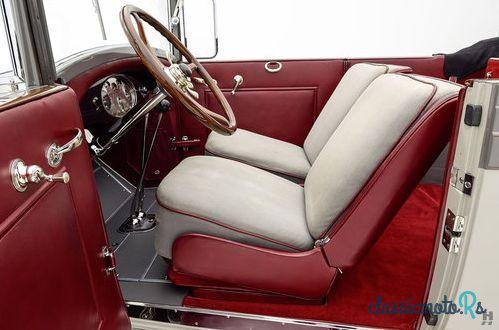
2 фото
1929' Lincoln Model L Convertible Victoria
Пожаловаться!Оценить!Запомнить это
£159,500Опубликовано 1 апреля 2019ID: nKK621
Истекло
6 лет, 10 месяцев назад
6 лет, 10 месяцев назад
Information from the owner
Кузов: Кабриолет
Возраст: 90 лет
Цвет: Красный
Электроника: Парктроник задний
Комментарии продавца про 1929' Lincoln Model L Convertible Victoria
In 1902, Henry M. Leland was charged with appraising the assets of The Henry Ford Company prior to its liquidation. Rather than liquidate the stocks, Leland suggested the firm reorganize and build a new car based on an engine he had previously designed for Olds. Henry Ford was forced out, and the new company was reorganized as Cadillac. Leland applied lessons he learned in the firearms business to automobile production, particularly in the use of interchangeable parts. Leland sold Cadillac to General Motors in 1909, but remained in charge, keeping Cadillac at the forefront of the automobile industry. A dispute with Billy Durant over the production of Liberty Aircraft engines led to Leland and his son-in-law departing from Cadillac in 1916. Leland secured a ten-million-dollar grant and soon started a new company, named for his hero, Abraham Lincoln. They built Liberty engines for the war effort; however, the Armistice came before Lincoln could fully establish itself, so the Lelands fell back on making what they knew best – luxury automobiles.
The Lincoln Model L was Henry Leland’s first production car, debuting in September 1920. The L was technically excellent, with its fork-and-blade 60-degree V8, torque tube drive, and robust chassis. Leland’s perfectionism delayed production, with the car debuting at the start of a post-war recession. The styling was also seen as dowdy and lacking the suitable Jazz-Age flamboyance that was necessary on such a pricey automobile. Initial sales were slow and financial troubles hit the company hard. Despite Leland’s vehement opposition, the board elected to sell Lincoln to Henry Ford for $8 million. Ford, perhaps acting in retribution, soon displaced Leland and assigned his son Edsel to head the new division. Edsel, unlike his father, understood the importance of style and he designed a new body for the L-series, also improving the handling by fitting hydraulic shock absorbers. Production was streamlined, saving vast amounts of money and turning Lincoln into a profitable business in less than a year, all while producing a superior product, despite Henry Leland’s fears to the contrary.
The V8 Lincoln L would continue to be a mainstay of the lineup for the remainder of the 1920s. It would, of course, see numerous improvements along the way. By 1929, it was reaching the end of its run and benefitted from the years of refinement by Ford’s engineers. The antiquated styling was a thing of the past, replaced by handsome sweeping lines designed under Edsel’s supervision. No fewer than thirty-nine different bodies were available from the factory or America’s finest coachbuilders, including Dietrich, Willoughby, LeBaron, and Brunn. The technical spec was mostly unchanged from 1928, except for some subtle mechanical refinements made to the chassis. Today, the Lincoln L is a favorite among classic-era enthusiasts for its excellent road manners, respectable power, and understated elegance.
This 1929 Lincoln L is a truly stunning example and one of just eight cars to wear this fantastic Convertible Victoria coachwork by Dietrich. A sporty and elegant car, the Lincoln was reportedly first owned by “Mr. Roberts” who an early celebrity hair stylist. By the 1950s, the Lincoln was discovered in a New York City parking garage, and by 1970, had been acquired by Ken Kenewell. Mr. Kenewell is a longtime classic era enthusiast with a particular fondness for these early Lincolns. In the 1990s, the car was treated to a meticulous restoration to beautiful concours standards and was shown at the 1999 Pebble Beach Concours d’Elegance. Also, it earned a CCCA Senior Premier award (No. 133), an AACA Grand National First prize in 1999, and is featured in Beverly Rae Kimes’ book “The Classic Era."
Since its restoration, this car has been maintained in exceptional condition. Finished in handsome two-tone warm gray accented with red Buffalo wire wheels (an option in 1929) and dark red coach stripes, this is undoubtedly one of the most attractive and fascinating open Lincoln designs of the era. The paint quality is outstanding, with impeccable quality finish work and fine detailing. Chrome plating is also excellent, remaining in incredible condition since the restoration. The body is minimally adorned, with just a Greyhound mascot, dual side-mount spares, dual cowl lamps, and a fitted trunk for a clean and crisp look.
The interior is particularly elegant, with individual armchair seats trimmed in gray Bedford cord cloth, with vibrant dark red leather piping and backing. Like the exterior, the interior is exceptionally well-preserved and presents in excellent condition. Upholstery shows minimal use, with only some very light wearing on the front seat cushions visible on close inspection. Front floors are finished in gray linoleum while the rear passenger compartment is carpeted in red. For additional luggage capacity, the rear seats cleverly fold out of the way, transforming the car into a sporty two-seater. Interior hardware and fittings are in excellent order – from the restored original instruments to the beautiful wood steering wheel and the fine nickel-plated hardware. The intriguing top configuration gives the car a “convertible coupe” look with its removable rear quarter windows, which are also hinged for ventilation. Folding the roof and stowing the side windows gives this Lincoln a decidedly sporty appeal.
Lincoln’s 60-degree V8 is one of the great engines of the era. Noted for its smoothness and precision, it produces 90 horsepower at 2,800 rpm and sends power through a 3-speed sliding gear transmission and torque-tube driveshaft. The engine presentation is outstanding, with correct clamps, hardware, and finishes on the crankcase, cylinder blocks, and heads. Some of the finish has baked-off the manifolds in places, which is not uncommon given the car has been carefully enjoyed since its restoration, but the overall presentation remains very impressive.
This handsome and exceptionally rare Lincoln represents the best that Ford Motor Company had to offer in 1929, as well as highlighting Raymond Dietrich’s exquisite craftsmanship and unique style. The fabulous restoration has been lovingly maintained, and this car remains in truly stunning condition, still suitable for concours events or for CCCA CARavan Tours. As one of just eight built, this represents a unique opportunity to acquire an impeccably restored and breathtaking Full Classic Lincoln.
$159,500
STOCK NUMBER 6284
The Lincoln Model L was Henry Leland’s first production car, debuting in September 1920. The L was technically excellent, with its fork-and-blade 60-degree V8, torque tube drive, and robust chassis. Leland’s perfectionism delayed production, with the car debuting at the start of a post-war recession. The styling was also seen as dowdy and lacking the suitable Jazz-Age flamboyance that was necessary on such a pricey automobile. Initial sales were slow and financial troubles hit the company hard. Despite Leland’s vehement opposition, the board elected to sell Lincoln to Henry Ford for $8 million. Ford, perhaps acting in retribution, soon displaced Leland and assigned his son Edsel to head the new division. Edsel, unlike his father, understood the importance of style and he designed a new body for the L-series, also improving the handling by fitting hydraulic shock absorbers. Production was streamlined, saving vast amounts of money and turning Lincoln into a profitable business in less than a year, all while producing a superior product, despite Henry Leland’s fears to the contrary.
The V8 Lincoln L would continue to be a mainstay of the lineup for the remainder of the 1920s. It would, of course, see numerous improvements along the way. By 1929, it was reaching the end of its run and benefitted from the years of refinement by Ford’s engineers. The antiquated styling was a thing of the past, replaced by handsome sweeping lines designed under Edsel’s supervision. No fewer than thirty-nine different bodies were available from the factory or America’s finest coachbuilders, including Dietrich, Willoughby, LeBaron, and Brunn. The technical spec was mostly unchanged from 1928, except for some subtle mechanical refinements made to the chassis. Today, the Lincoln L is a favorite among classic-era enthusiasts for its excellent road manners, respectable power, and understated elegance.
This 1929 Lincoln L is a truly stunning example and one of just eight cars to wear this fantastic Convertible Victoria coachwork by Dietrich. A sporty and elegant car, the Lincoln was reportedly first owned by “Mr. Roberts” who an early celebrity hair stylist. By the 1950s, the Lincoln was discovered in a New York City parking garage, and by 1970, had been acquired by Ken Kenewell. Mr. Kenewell is a longtime classic era enthusiast with a particular fondness for these early Lincolns. In the 1990s, the car was treated to a meticulous restoration to beautiful concours standards and was shown at the 1999 Pebble Beach Concours d’Elegance. Also, it earned a CCCA Senior Premier award (No. 133), an AACA Grand National First prize in 1999, and is featured in Beverly Rae Kimes’ book “The Classic Era."
Since its restoration, this car has been maintained in exceptional condition. Finished in handsome two-tone warm gray accented with red Buffalo wire wheels (an option in 1929) and dark red coach stripes, this is undoubtedly one of the most attractive and fascinating open Lincoln designs of the era. The paint quality is outstanding, with impeccable quality finish work and fine detailing. Chrome plating is also excellent, remaining in incredible condition since the restoration. The body is minimally adorned, with just a Greyhound mascot, dual side-mount spares, dual cowl lamps, and a fitted trunk for a clean and crisp look.
The interior is particularly elegant, with individual armchair seats trimmed in gray Bedford cord cloth, with vibrant dark red leather piping and backing. Like the exterior, the interior is exceptionally well-preserved and presents in excellent condition. Upholstery shows minimal use, with only some very light wearing on the front seat cushions visible on close inspection. Front floors are finished in gray linoleum while the rear passenger compartment is carpeted in red. For additional luggage capacity, the rear seats cleverly fold out of the way, transforming the car into a sporty two-seater. Interior hardware and fittings are in excellent order – from the restored original instruments to the beautiful wood steering wheel and the fine nickel-plated hardware. The intriguing top configuration gives the car a “convertible coupe” look with its removable rear quarter windows, which are also hinged for ventilation. Folding the roof and stowing the side windows gives this Lincoln a decidedly sporty appeal.
Lincoln’s 60-degree V8 is one of the great engines of the era. Noted for its smoothness and precision, it produces 90 horsepower at 2,800 rpm and sends power through a 3-speed sliding gear transmission and torque-tube driveshaft. The engine presentation is outstanding, with correct clamps, hardware, and finishes on the crankcase, cylinder blocks, and heads. Some of the finish has baked-off the manifolds in places, which is not uncommon given the car has been carefully enjoyed since its restoration, but the overall presentation remains very impressive.
This handsome and exceptionally rare Lincoln represents the best that Ford Motor Company had to offer in 1929, as well as highlighting Raymond Dietrich’s exquisite craftsmanship and unique style. The fabulous restoration has been lovingly maintained, and this car remains in truly stunning condition, still suitable for concours events or for CCCA CARavan Tours. As one of just eight built, this represents a unique opportunity to acquire an impeccably restored and breathtaking Full Classic Lincoln.
$159,500
STOCK NUMBER 6284
